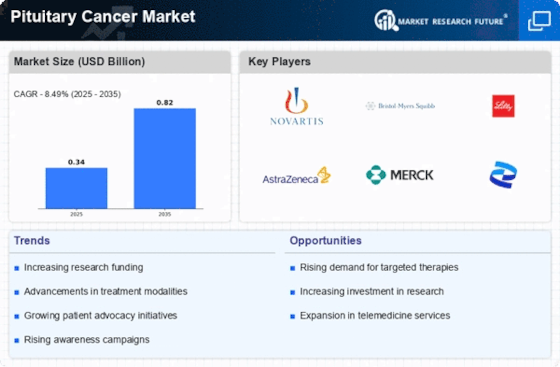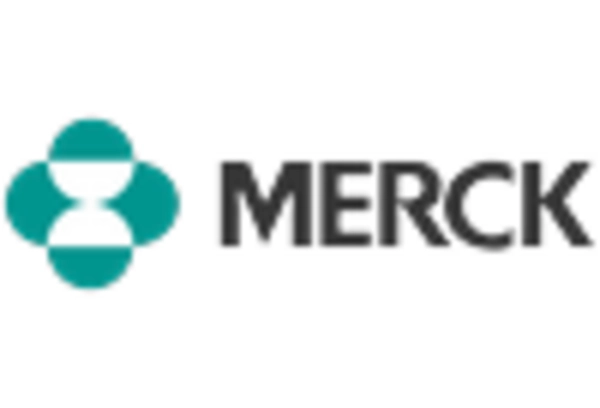Market Analysis
In-depth Analysis of Pituitary Cancer Market Industry Landscape
Pituitary cancer is a kind of cancer that is rare and therefore presents a unique challenge to the field of oncology. There are various factors that shape the market dynamics of this type of cancer, such as its low incidence rate combined with complexities in its diagnosis and treatment. Pituitary cancer being an unusual malignancy does not receive much attention like other cancers; hence, there is limited research funding and scarcity of therapeutic options. Therefore, scientists and pharmaceutical companies have turned their focus in niche markets concerning development of targeted therapies based on identifying specific genomic and molecular characteristics that define pituitary tumors.
The diagnostic landscape is one major area underpinning the market dynamics. Despite the subtlety of symptoms coupled with similarity between benign and malignant tumours, early diagnosis remains challenging. This has seen advanced imaging techniques together with molecular diagnostics being developed for purposes of bettering early detection strategies alongside more accurate classification methods. Thus as these technologies advance, they can potentially change the market dynamics through helping clinicians to identify pituitary cancer in early stages hence leading to effective therapy.
Another crucial component in market dynamics is medical treatment for pituitary cancer. In consideration that it’s very rare, little has been done in terms of developing dedicated treatment options. Surgery, radiation therapy and pharmacotherapy are some existing modalities; each having its limitations and challenges. The pharmaceutical industry is actively researching new treatments such as targeted therapies or immunotherapies meant to address specific molecular pathways involved in pituitary tumor growth. However, the small patient population poses a financial hurdle towards drug developers thus requiring innovative approaches capable of facilitating investment into specialized research projects.
The patient experience shapes the market dynamics around pituitary cancer significantly. Typically diagnosed at advanced stages due to its rarity, this affects overall prognosis thereby affecting survival rates as well.Patients’ advocacy groups including support networks act as important stakeholders which call for increased awareness creation so that new diagnostic procedures could be discovered as well more treatment options. Collaboration among these advocacy groups, healthcare providers and pharmaceuticals can make the market dynamics better therefore enabling pituitary cancer patients to have a better care.
Moreover, regulatory frameworks and reimbursement policies significantly influence the market dynamics of pituitary cancer. The regulatory landscape should adjust in order to suit peculiarities of therapies being developed for rare diseases by facilitating fast approval while upholding high safety measures. Similarly, reimbursement policies play a crucial role in ensuring that patients have access to innovative treatments without imposing undue financial burdens on healthcare systems.


















Leave a Comment